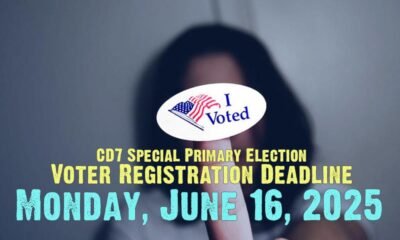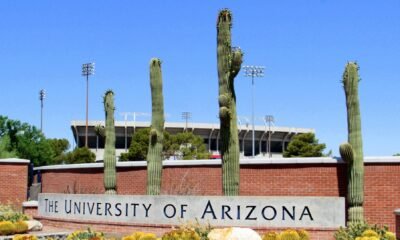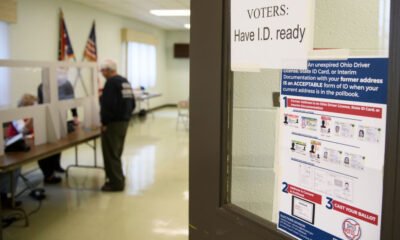arizona
Supreme Court’s Landmark Ruling on Voter Citizenship Requirements Significantly Affects Native Voters

The recent U.S. Supreme Court ruling mandating proof of citizenship for voter registration has sparked concern among Indigenous voting rights advocates in Arizona. Despite the new requirement, advocates emphasize that Indigenous individuals can still register as tribal citizens.
Patty Ferguson-Bohnee, Director of the Indian Legal Clinic and Clinical Professor of Law at the Sandra Day O’Connor College of Law, highlighted that enrolled members of federally recognized tribes can use their tribal identification numbers to validate their citizenship during voter registration. “As long as a tribal member is an enrolled member of their tribe, they can use that tribal ID number to register on the state form,” she stated, reminding that Indigenous people were granted U.S. citizenship in 1924.
Ferguson-Bohnee’s work extends to coordinating the Arizona Native Vote Election Protection Project, dedicated to safeguarding Indigenous voters’ rights. She noted that the state’s voter registration form includes a space for Indigenous individuals to provide their enrollment numbers to establish their citizenship. However, she warned, “People registering voters must not leave that blank; otherwise, the form will be rejected.”
The Supreme Court’s ruling on August 22 allows Arizona to enforce a voter registration law previously impeded by lower courts. This ruling permits the state to reject voter registration forms from individuals who fail to show proof of citizenship. Without notification, these forms may be discarded, potentially leading to voter confusion and discouragement.
Arizona Native Vote Executive Director Jaynie Parrish expressed uncertainty about how best to proceed. Her organization, which aims to increase civic engagement in tribal and rural communities, is currently in limbo regarding registration strategies. “We’re waiting for directions on how this impacts Indigenous voters in Arizona,” she remarked.
Complicating matters, Parrish noted that Indigenous voters often face existing challenges, such as rural addresses and limited access to polling places. The additional requirement of proof of citizenship may further hinder their ability to register. She suggested that on-the-ground efforts could require more resources, such as printers for copying necessary documents.
For now, the uncertainty may force a temporary pause in voter registration efforts until clearer guidelines are established. “It’s disheartening; we must keep pushing forward against disenfranchisement,” Parrish lamented.
Supporting these efforts, Ceridwen Cherry, legal director for VoteRiders, noted that approximately 41,000 voters in Arizona are eligible to participate in federal elections but lack state voting access due to not providing proof of citizenship. Cherry’s organization plans outreach to this group to assist them with their voting rights.
A national study conducted in partnership with VoteRiders uncovered that around 21.3 million eligible American citizens do not readily have access to documentation proving citizenship, highlighting a significant barrier for many voters. Concerns are particularly pronounced among communities of color, where 11% of American citizens of voting age face difficulties in accessing such documents.


















